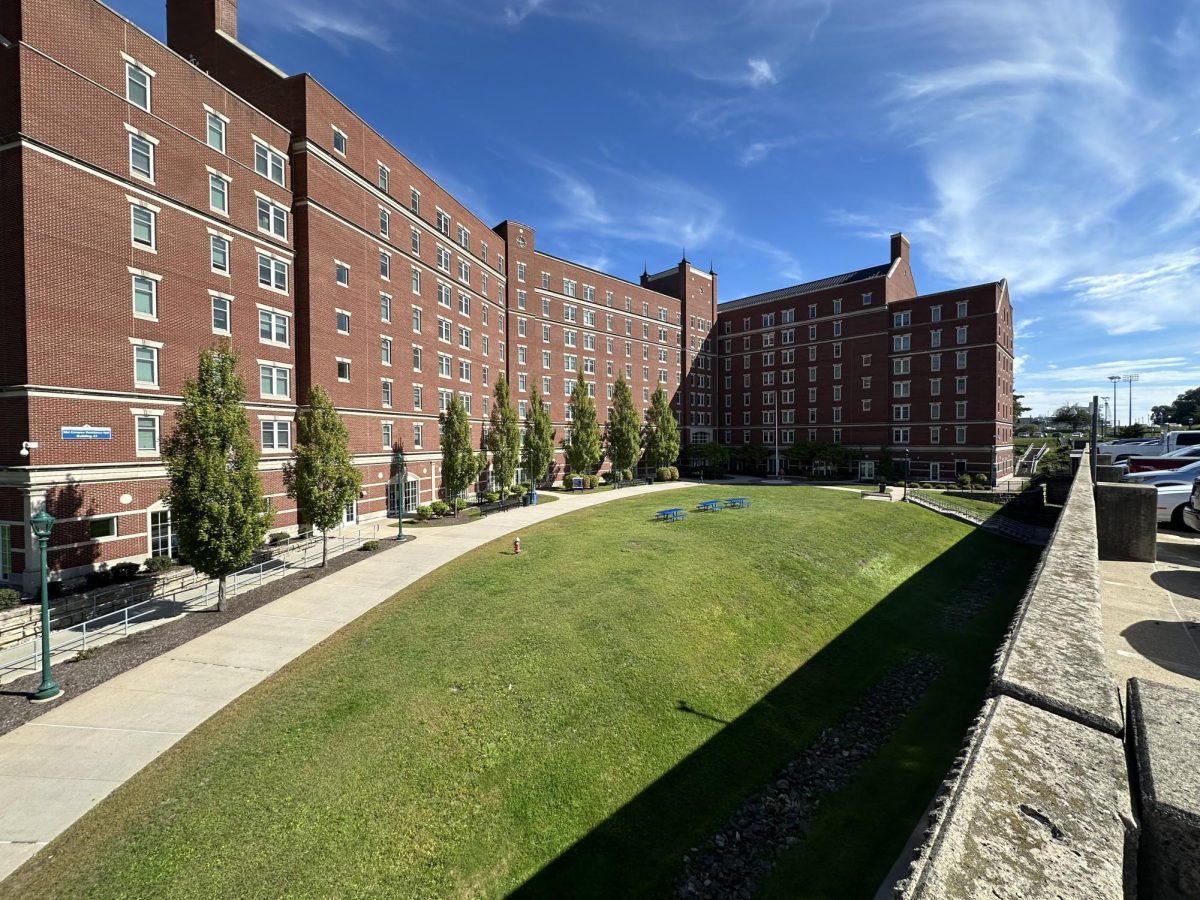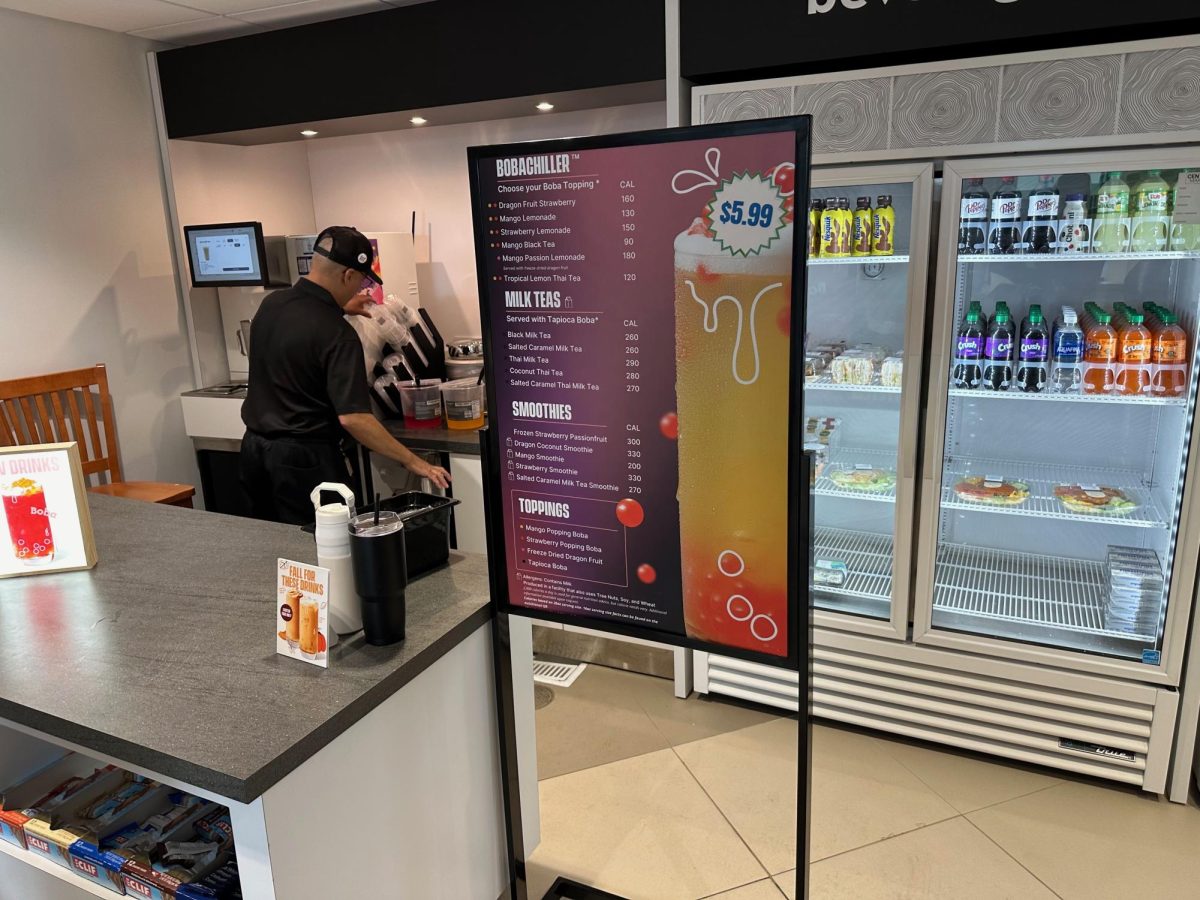
Alex Rodriguez, CCSU ’11, Business Management major, Economics minor
Melissa Traynor: What are you planning on doing after CCSU? And that could include graduate school, or anything else.
Alex Rodriguez: I’d like to own my own business at some point, but I definitely see a future in politics so I’m thinking about going to grad school, possibly either getting an MBA or going into public policy. It’s really uncertain now just because – you know how things are right now, so it’s always a big question mark. It depends on whether the job market’s better when I’m out of here, than it is now. It’s really between business and politics, and either/or. So I’ll see how things go.
MT: Could you just talk about your background either inside of SGA and the senate or outside of SGA – either one?
AR: I’ve never been a part of the actual senate. Right now I serve as the trustee for the [Connecticut State University] Board of Trustees – you know, the student representative for Central. so I haven’t had any actual experience in the senate, but I feel that, you know, I can kind of bring the perspective from outside, and working with different clubs and organizations, it gives me that background in terms of my leadership that I’ve developed being a part of different groups. I’m president of LASO (Latin American Student Organization), and just interacting with other organizations in terms of collaborating and all that. So I haven’t had any actual work within the senate, but I feel that I have qualifications in other things that kind of give me the strong hand.
MT: This is just kind of getting into the meatier questions. Why are you running?
AR: I’m running because I feel that on the collective level, students aren’t represented all that well, and when you look at professors and faculty, they have a faculty senate, and our real decision-making body and the body that’s supposed to represent us as students is the SGA. I feel that they can be a lot stronger and should be a lot stronger. And especially when things things are, you know, so tight when you’re talking about budgets and how the state deficit looks right now, I just feel that students really do need a voice on anything that’s a decision-making board or a committee on this campus. And I just feel that students – again, as a whole – need to be represented a lot better and that’s what I would hope to change if I was elected president.
MT: Forgive me if some of these questions might provoke redundant answers, but what are your goals as president?
AR: I’m very big on emphasizing community. So you hear a lot about campus community and CCSU community and that’s very vague. So if I am elected I’d like to really focus on creating a community. You have different schools on campus and within those schools you have different departments, but how often do those departments get to interact?; how often do those schools get to interact?; how often do students and faculty get to interact? There’s almost like a barrier between the two. And just being able to kind of open up new avenues for interaction to take place is something that I’d like to emphasize during my presidency if I was elected – something as simple as a coffee hour every week or every two weeks.
I know that there are schools – I believe it’s the University of Virginia that has – I think it’s every Tuesday from 9 o’clock in the morning to 11 in the morning and that every Tuesday and both students and faculty knows that it’s a coffee hour and they have a set space on their campus where it’s really that simple interaction – drink coffee and have cheese and crackers and just talk. And that’s what a university is really supposed to be. You’re supposed to be able to exchange ideas and exchange knowledge and when you allow for those departments to interact; when you allow distinguished professionals and faculty to interact with students who would would like to pursue similar careers, you know, that’s really going to build that CCSU community and make it stronger.
MT: And beyond concerns – and when I say concerns I mean the community issue that you just brought up – you might be a little reluctant to answer this question, but are there any serious gripes or things that you see as problems? Maybe they’re not huge problems, but is there anything that particularly –
AR: Irritates me?
MT: Yeah, what kind of irritates you? -either with the campus or it could extend to the larger community.
AR: Right. It would really have to – I don’t really know if I want to say this, but it comes down to student involvement, you know. Because we heard a lot about tuition increases, and in my opinion, the reaction to something like tuition increase – something that affects everyone – it wasn’t really all that big. It was more of an “aw, man” and shrug of the shoulders and you kept moving. And I think that’s a problem. It really reflects on our numbers in terms of elections – statewide elections. So it’ll be interesting to see if 2010 – the elections taking place for governor, Senate and so on and so forth – if students are going to be more civically involved, if more college students are going to turn out to those polls. Because really it comes down to the state providing the money to the State University System for the funds to be allocated appropriately. And if there’s not enough noise, so to speak, from the students then, you know, nothing’s really going to get done. And I think that’s where it all falls upon. If students really want to make a change and – again – better the student body, it’s going to take more participation and more involvement.
MT: And just to elaborate on that, are there different levels of student involvement that you think the average CCSU could start at? And this could be as simple as just being an active member of a club…?
AR: The beauty about Central is the fact that there’s so many different people and every has their own set agenda as to why they’re here. And some students don’t have to worry about working, and others work 40 hours on top of their 15-credit workload and they don’t really have time to participate in anything outside of their academics because they’re always working. So it really varies on the individual and how involved you can be. I think there’s getting involved for self-improvement. Others might participate in something to benefit the community and they might want to get out and work with kids in New Britain or Hartford and that might be their way of getting involved. It’s just a matter of seeing it more on this campus – and going back to voting in November, it has nothing to do with Central, really, it’s just kind of your civic duty.
MT: If you become the next SGA president, what is the first thing you will do?
I really don’t know. Again, if I’m elected president, I really don’t have a vote. I’m kind of directing where SGA’s going. They’ve done this this year, which I’ve really liked – they increased the amount of scholarship money that they gave out. So I would like to at least keep it the same or maybe increase it.
And along with that, the university got a community grant, and a lot of students have heard about our new area of emphasis on community engagement or civic engagement or which ever one you would like to call it. Now there’s a lot of projects going on that are really beneficial to the community and when I say the community that’s very broad because it could extend to New Britain, Hartford to the greater area of Connecticut and my only problem with that is that it’s strictly through academic affairs and there’s a lot of good work being done through the classroom and students are able to partake in these initiatives, but there are a lot of student groups on this campus that have been doing community work for a long time and have been engaging in the community for a long time. But they’re not being supported the same way as the academic aspect of the university is getting supported in that community initiative. So I would like to not necessarily take away the academic aspect because that’s not going to happen anyways, but to at least add the student affairs component and getting these student groups and organizations on campus that have been doing community work and getting them involved with those initiatives that are taking place through the university’s new mission of community engagement.


